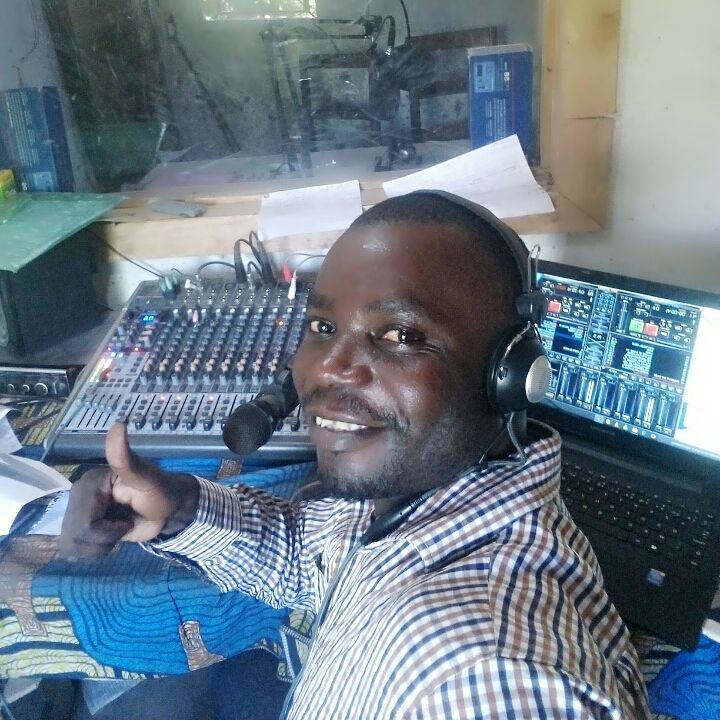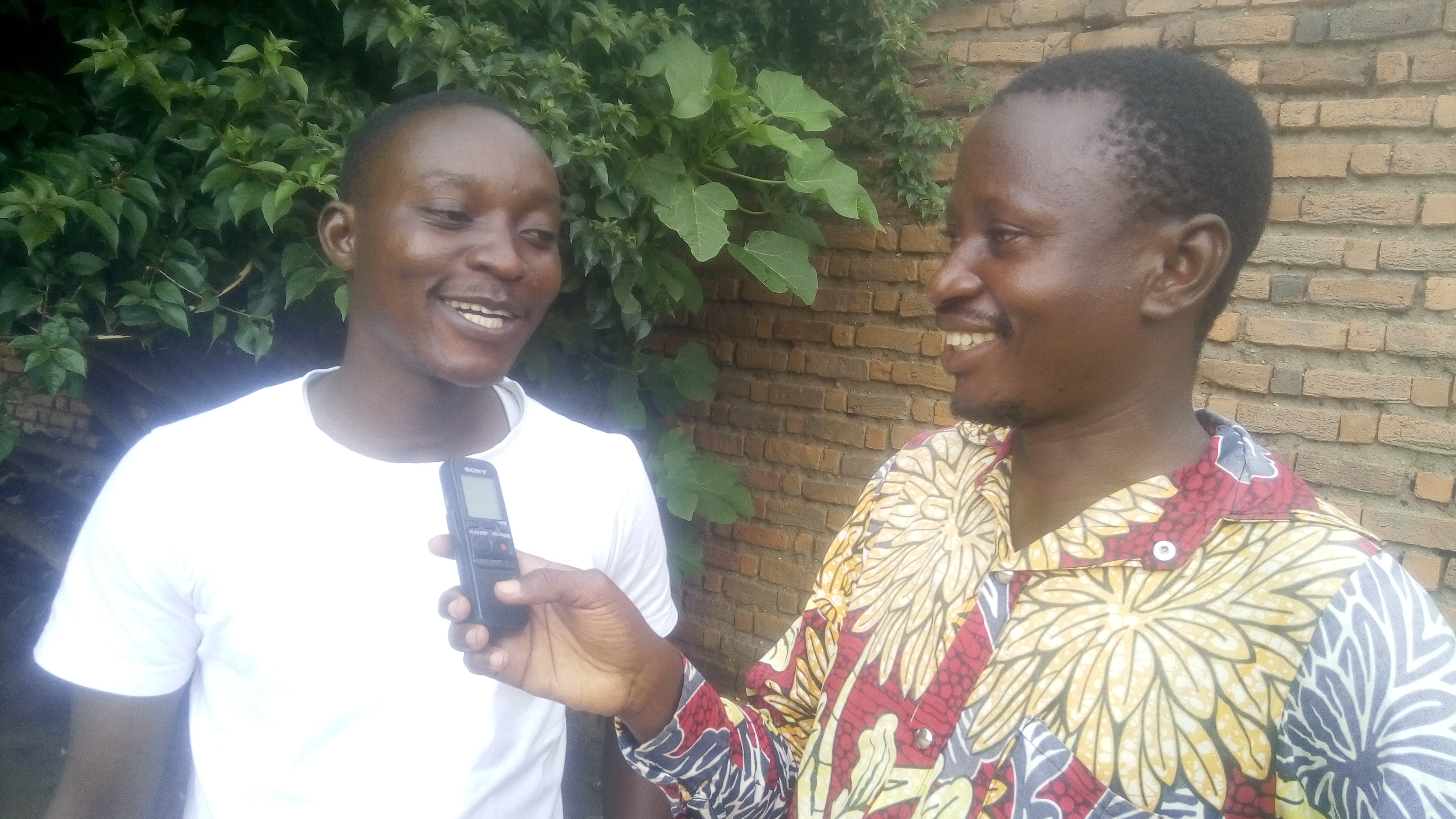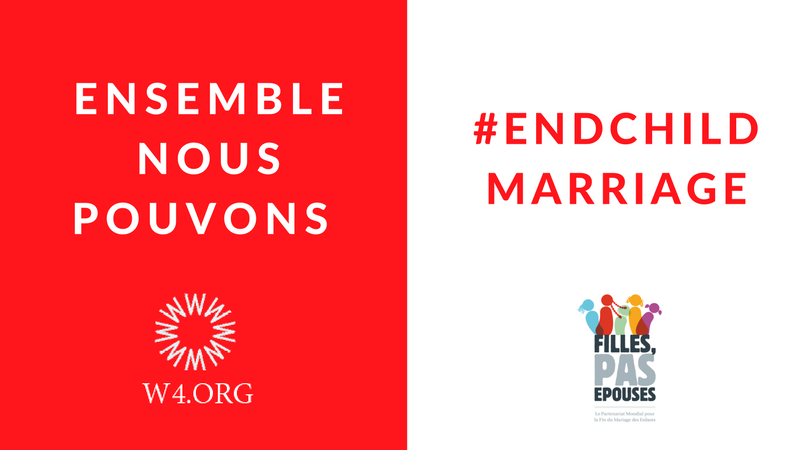“Every two seconds, a girl is married. We can change this.
Together, we can end child marriage!”
Our field partner, Radio Ondese, proposes innovative solutions to bring an end to child marriage through the use of technology and community inclusion. David M. Munyaga, founder of Radio Ondese, shares with us in this interview the crucial work he and his team are undertaking in DR Congo.

David at the radio station
Why have you chosen to raise awareness about child marriage in your community through the radio?
For journalists working in remote places, the radio is one of the most efficient communication tools, enabling one to easily transmit information and reach a large audience. In fact, the radio is the only form of media in the region that people absolutely trust. With child marriage being particularly common in our region, we, as journalists, thought we should use the radio to help bring an end to this serious injustice that continues to corrupt communities in DR Congo. According to a study completed by a local organization in 2016, our radio station has the largest following in the region: more than 150,000 people listen to our station everyday. Our listeners are primarily women since topics on women’s rights represent 50 percent of our programs.
Do you have any strategies to spread awareness among men about this issue?
We often organize interactive programs and debates, allowing men and women to participate and intervene via live phone calls or SMS messages. We also regularly visit villages to meet with and interview men in their homes. In the past, it was rather difficult to bring together men and women to discuss issues related to gender. Today, we have been able to mobilize speakers and gather men, women, parents and young people who are interested in contributing to the fight against child marriage. We produce and diffuse programs that shed light on the issue and inform the community about the importance of gender equality, and most of all, reassert that women reserve the same human rights as men.
In the past, society has relegated women to the kitchen or the fields. It has also been said that girls and women should neither be allowed to give their opinions nor be involved in affairs that concern men. This mentality is no longer the standard, but still exists until today. We have launched this campaign precisely with the aim of furthering our work and helping more men understand that the place of a 15- or 17-year-old girl is not at home, but at school. This is the vision that motivates us each day.
 A journalist from Radio Ondese performing an interview
A journalist from Radio Ondese performing an interview
Who do you invite to participate in your debates and public programs?
For the debates, we go to surrounding villages and invite the community leaders, local chiefs as well as women leaders to participate in our programs. The programs are really appreciated by the listeners because they touch on local realities and allow people to speak freely. Even girls who are often intimidated by their parents reactions are able to express themselves and participate in the debates.
During the interactive programs, we invite experts (women leaders who are experts in the subject, lawyers, local authorities or political administrative officials) and listeners, who can also interact with them via live SMS messages or by calling the radio. Every week, we produce at least five programs about the subject and dedicate about one or two minutes daily to the issue, in order to raise awareness among the community and parents and to convey the message that marrying a girl before the age of 18 years old is punishable by law.
We sometimes encounter a few problems, especially when we go to the villages wherein the leaders and customs insist that girls must marry before their 18th birthday. We are thus obliged to bring political officials and lawyers, sometimes even pastors, to help us to inform these leaders about the harmful effects of child marriage. As you can see, the work is not easy. At times, we even receive threats but when we see that a 12-year-old girl is already married or that another 15-year-old girl is a mother of three children, we know that we must continue.

Do you lead any other awareness-raising activities about child marriage within the communities?
In addition to the radio programs, we organize training workshops for community leaders and we have also created “listening clubs”. The workshops enables us to strengthen the effects of our programs, to hear the feedback of our listeners about what they have learned from the radio programs and to help participants better understand the gravity of the issue. The workshops are participatory and provide participants the opportunity to exchange with experts and young women who have been subjected to child marriage.
The “listening clubs” are discussion groups dedicated to girls and women who have been forced into child marriage. This talking circle is an occasion for the girls and women to discuss amongst each other the difficulties they have encountered and to provide each other support. We train and provide them guidance on different subjects, explaining that they can take back control of their life, move forward and rebuild themselves. Through these workshops and “listening clubs”, we try to guide them in their path towards psychological rehabilitation.
What feedback have you received from the girls and women who participate in your activities?
We receive a lot of testimonies from them. Some of the girls and young women even spend their telephone credits to call the radio and to share how much they have benefitted from our activities! Their experiences are what bring us the inspiration and courage to continue moving forward and show us that our work is capable of having a real impact in the community.
The radio is a vital and efficient tool capable of helping young women reclaim and reassert their human rights in eastern DR Congo, a region sadly marked by recurrent war and violence. We hope to one day be able to say that child marriage is over and that all girls are free and able to receive an education. Every donation represents an important contribution to the betterment of the life of one girl. One more life that can be saved.
Discover how you can support this project here: A radio program raising awareness on child marriage in South Kivu













